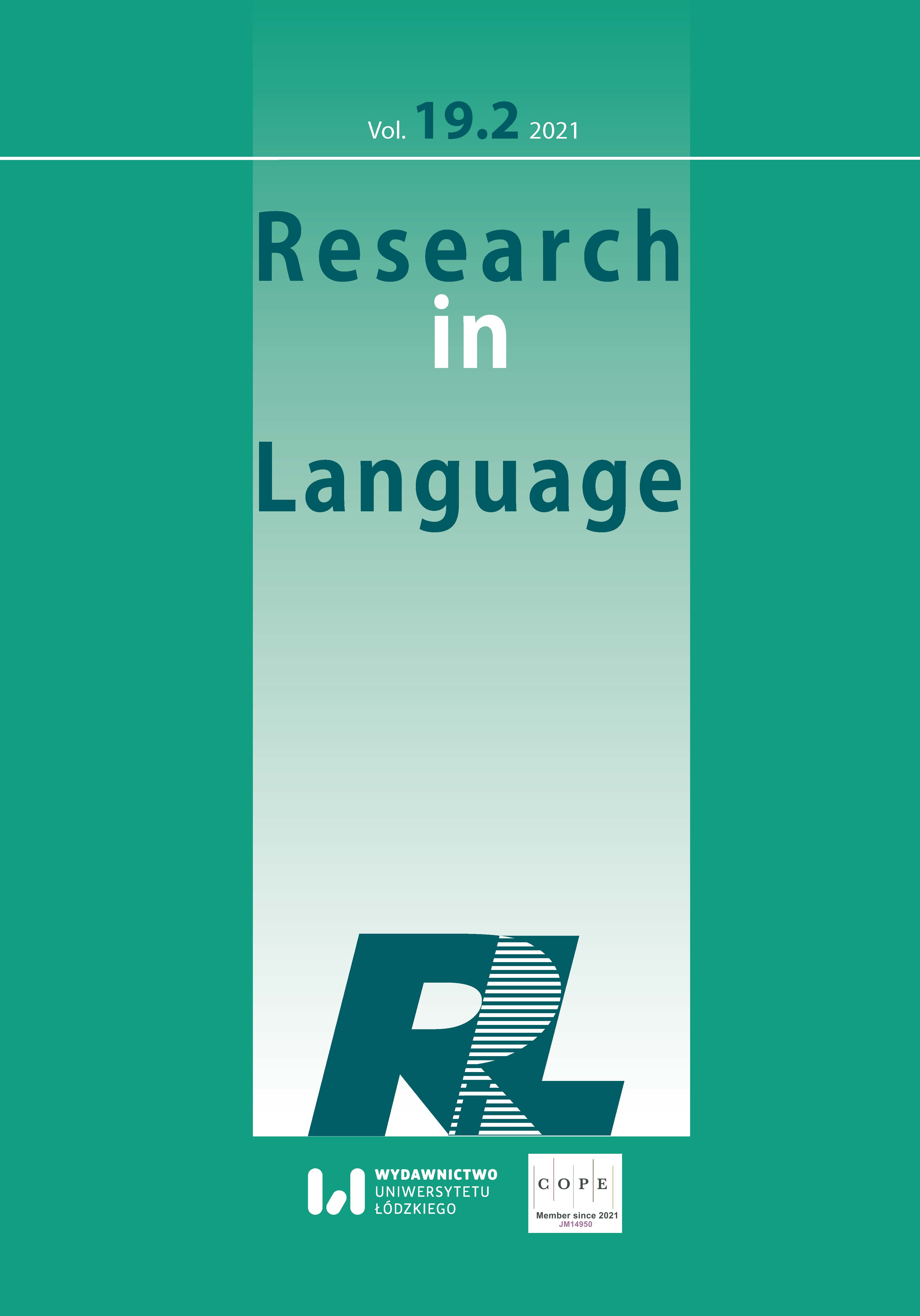Focus on the Translation Trainee
DOI:
https://doi.org/10.18778/1731-7533.19.2.01Abstract
A learner-based approach to translator training has already been recognised and discussed in translator education for the last few years (González-Davies 2004; Kelly 2005; Kiraly 1995, 2000; Massey et al. 2019). With the main focus on learning rather than training and the translator rather than the product or the process of translation, the observed trend in translation studies can be called ‘translator studies’ (Chesterman 2009). The tendency has been for the teacher-centred approach to be gradually replaced by manners of teaching which favour learner autonomy (Gonzalez Davies 2004).
Nonetheless, due to the multiple demands that translator teachers must fulfil, they still happen to be regarded as the main active performers in the educational process. Invaluable as the teacher’s agency is for shaping the educational reality that translation trainees experience, translator education requires ensuring that student-oriented education actually involves freeing teachers and students from their traditional roles, to break out of the routine in which they have been rooted for years. It is worth emphasising that the roles and responsibilities of the translator teacher and student are equally important. The article looks at the translation educational process with the main focus on trainees who are supposed to build their career in the uncertain and indeterminate translation industry of the future.
References
Boyd, Robert . D., and Myers, Gordon. J. 1988. “Transformative Education.” International Journal of Lifelong Education, 7(4), 261–284.
Google Scholar
DOI: https://doi.org/10.1080/0260137880070403
Candy, Philip, Harri-Augstein Sheila, and Thomas, Laurie (1985). “Reflection and the self-organized learner: a model of learning conversations.” In David Boud, Rosemary Keogh, and David Walker, Reflection: Turning Experience into Learning, 100–116. London: Kogan Page.
Google Scholar
Cranton, Patricia. 1994. Understanding and Promoting Transformative Learning: A Guide for Educators of Adults. San Francisco: Jossey-Bass.
Google Scholar
González-Davies, Maria 2004. Multiple Voices in the Translation Classroom. Activities, Tasks and Projects. Amsterdam & Philadelphia: John Benjamins.
Google Scholar
DOI: https://doi.org/10.1075/btl.54
Gonzalez-Davies, Maria & Enriquez Raído, Vanessa. (eds) 2018. “Situated learning in translator and interpreter training: Bridging research and good practice.” The Interpreter and Translator Trainer, 12-28. 10. 1-11.
Google Scholar
DOI: https://doi.org/10.4324/9780203732304-1
Hawkins, Spencer John. 2021. “The Digital Translation Classroom: Another Day at the Computer for the Burgeoning Translato.” New Voices in Translation Studies 24: 72-81
Google Scholar
Haro-Soler, Maria and Kiraly, Don. 2019. “Exploring self-efficacy beliefs in symbiotic collaboration with students: an action research project”. The Interpreter and Translator Trainer 13(3), 255-270, DOI: 10.1080/1750399X.2019.1656405
Google Scholar
DOI: https://doi.org/10.1080/1750399X.2019.1656405
Kelly, Dorothy 2005. A Handbook for Translator Trainers: A Guide to Reflective Practice, Manchester: St. Jerome.
Google Scholar
Kiraly, Don. 1995. Pathways to Translation: Pedagogy and Process. Kent: Kent State University Press.
Google Scholar
Kiraly, Don. 2000. A Social Constructivist Approach to Translator Education. Empowerment from Theory to Practice, Manchester, St. Jerome.
Google Scholar
Klimkowski, Konrad. 2015. Towards a Shared Curriculum in Translator and Interpreter Education, Wrocław: Wydawnictwo Wyższej Szkoły Filologicznej.
Google Scholar
Knowles, Malcolm. 1975. Self-directed learning: A guide for learners and teachers, New York, Toronto: Cambridge Adult Education Company.
Google Scholar
Kornacki, Michał. 2018. Computer-assisted translation (CAT) tools in the translator training process. Peter Lang.
Google Scholar
DOI: https://doi.org/10.3726/b14783
Kornacki, Michał and Paulina Pietrzak. 2021. “New translator training environments: Towards improving translation students’ digital resilience”. New Voices in Translation Studies 24 Special Issue.
Google Scholar
Massey, Gary, Don Kiraly and Maureen Ehrensberger-Dow (eds.). 2019. The Interpreter and Translator Trainer, 13(3), Special issue: Training the Trainers.
Google Scholar
DOI: https://doi.org/10.1080/1750399X.2019.1647821
Mezirow, Jack. 1990. “How critical reflection triggers transformative learning.” In Jack Mezirow (ed.)., Fostering Critical Reflection in Adulthood: A Guide to Transformative and Emancipatory Education, 1-20. San Francisco: Jossey-Bass.
Google Scholar
Mezirow, Jack. 1996. “Contemporary paradigms of learning.” Adult Education Quarterly, 46(3): 158–173. https://doi.org/10.1177/074171369604600303
Google Scholar
DOI: https://doi.org/10.1177/074171369604600303
Mezirow, Jack. 2003. “Transformative Learning as Discourse.” Journal of Transformative Learning 1(1), 58–63.
Google Scholar
DOI: https://doi.org/10.1177/1541344603252172
Pietrzak, Paulina and Kornacki, Michał 2020. Using CAT Tools in Freelance Translation: Insights from a Case Study, New York: Routledge.
Google Scholar
DOI: https://doi.org/10.4324/9781003125761
Pietrzak, Paulina. 2022 forth. Metacognitive translator training: focus on personal resources. London: Palgrave.
Google Scholar
DOI: https://doi.org/10.1007/978-3-030-97038-3
Schön, Donaldr, A. 1983. The Reflective Practitioner: How Professionals Think in Action. New York: Basic Books.
Google Scholar
Downloads
Published
How to Cite
Issue
Section
License

This work is licensed under a Creative Commons Attribution-NonCommercial-NoDerivatives 4.0 International License.










